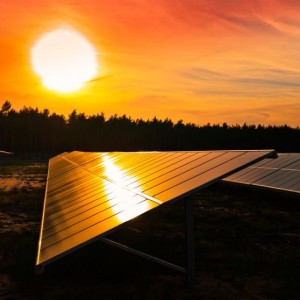 An article in yesterday’s News & Advance profiled a Lynchburg business that has invested over half a million dollars to produce solar energy at its headquarters. BMS Direct, a company that processes invoices and billing statements, now has over 900 solar panels on the roof of its 80,000-square-foot facility in Lynchburg. The solar panels now supply about half of the company’s electric needs, and the resulting energy savings are expected to pay for the cost of the system in six years.
An article in yesterday’s News & Advance profiled a Lynchburg business that has invested over half a million dollars to produce solar energy at its headquarters. BMS Direct, a company that processes invoices and billing statements, now has over 900 solar panels on the roof of its 80,000-square-foot facility in Lynchburg. The solar panels now supply about half of the company’s electric needs, and the resulting energy savings are expected to pay for the cost of the system in six years.
Several factors, including declining solar panel prices and federal investment tax credits, make it a great time to invest in solar energy. According to the Solar Energy Industries Association (“SEIA”), solar has experienced an average annual growth rate of 68%, while installed solar prices have dropped 55% over the last five years. The installed cost of a solar installation is now between $2.30 per watt and $2.75 per watt for residential systems and $1.40 per watt and $2.20 per watt for commercial systems. Federal law currently authorizes a 30% tax credit for residential and commercial solar systems, although this percentage is scheduled to decline beginning in 2020.
Virginia law allows all customers to generate their own renewable energy on site by “net metering.” Electric utilities in Virginia are required to offer net metering programs, which allow residential customers and businesses like BMS Direct to install renewable energy facilities on their property. Net metering customers only have to pay their utility for their electricity usage that is in excess of what they generate on site. Appalachian Power (“APCo”) says that about 750 of its customers participate in the net metering program.
Moreover, Virginia customers are also currently permitted to purchase 100% renewable energy, including solar, from non-utility companies. Under Virginia law, most customers are allowed to purchase renewable generation from third-party suppliers only if their incumbent electric utility does not have an approved tariff for 100% renewable energy. See Va. Code Section 56-577(A)(5). However, no Virginia utility currently offers a 100% renewable energy option for its customers. As we have written about here, the Virginia State Corporation Commission (“SCC”) recently rejected a renewable energy tariff proposal by APCo that, if approved, would have prevented its customers from purchasing solar energy from third-party suppliers.
The SCC is also currently considering a similar renewable tariff application filed by Dominion Energy Virginia (“Dominion”) in SCC Case No.PUR-2017-00060. If approved, Dominion’s tariff would limit clean energy choices for its large customers, and potentially other classes of customers in the future.
If you want to learn more about the regulations governing solar installations, and whether developing a solar energy project may make sense for you or your business, please contact one of our renewable energy lawyers or regulatory attorneys.


No Comments